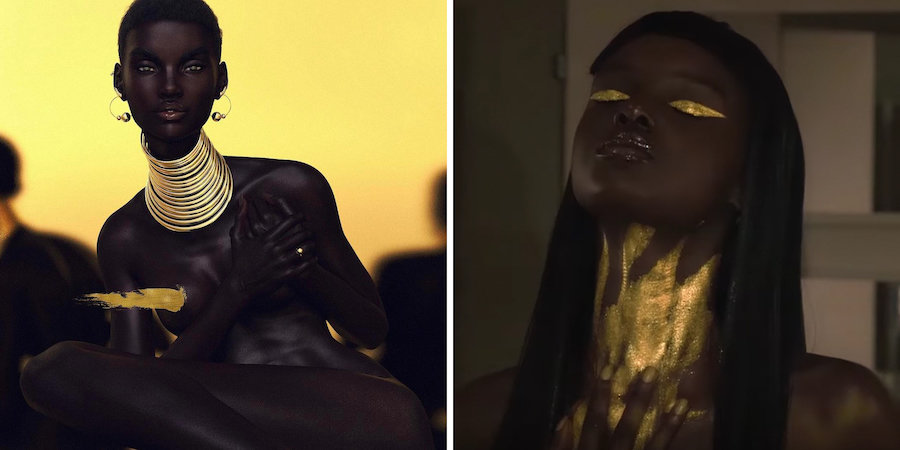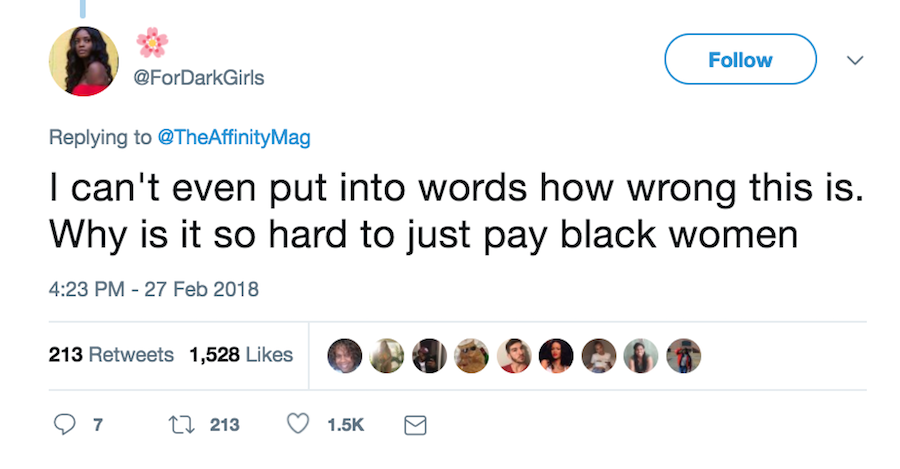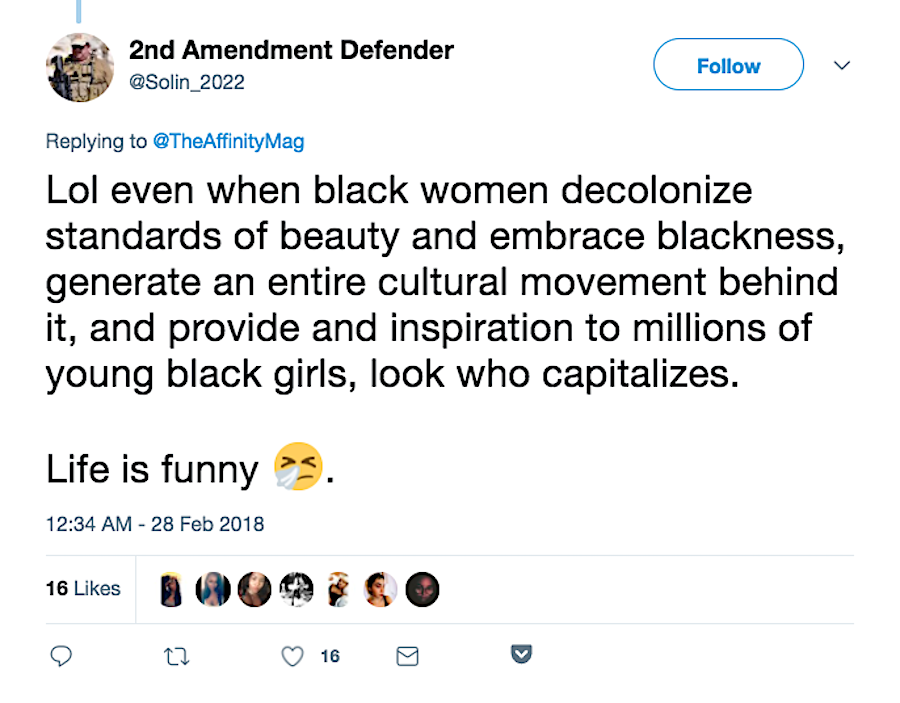Shudu is the “world’s first digital supermodel” — aka a Black Instagram model who is entirely fictional.
Unsurprisingly, Twitter has A LOT of hard feelings about Wilson’s Black female creation.
“She is not a real model unfortunately, but she represents a lot of the real models of today. There’s a big kind of movement with dark skin models, so she represents them and is inspired by them.”
“Obviously some models like Duckie were definitely big inspirations for her as well,” Wilson told the magazine.
The image of Shudu wearing Fenty Beauty is so striking, even the beauty brand reposted the image of her on its Instagram page.
Five days ago, the internet was celebrating the fact that Prada hired its first Black model to walk on a runway since Naomi Campbell in 1997.
Many people praised Prada, but I remain unimpressed. The brand gave one dark-skinned model a chance in 1997, then basically said, “screw them,” for 21 years. I’m glad Anok Yai is getting her coins, but that ain’t celebratory; it’s sad AF.
With the abundance of beautiful Black women, why are we still sliding into “first and second to make it” history slots in 2018?
While real Black women wade through that struggle, Wilson has created a fake Black woman who’s now amassed 39.2K followers on Instagram — a follower count that would already be earning her some cute checks if she were an actual human with a bank account.
Creation and ownership of a Black woman — real or not — by a white man is undeniably horrifying to me. Seeing her naked and adorned in gold, even in the name of art or inclusion, doesn’t make me, a real dark-skinned Black woman, feel empowered or inspired.
I feel especially strongly since Wilson himself cited the “movement” of dark-skinned Black women in modeling as part of his inspiration, which makes me think he sees Shudu as his capitalization on a trend. Wilson making Shudu to feed his creativity feels fetish-y, in my personal opinion.
Call it overly sensitive, but as a Black person and woman, that perception is my right to have.
As Black women are dealing with a greater pay gap than any other group in the world and Black models are still having a hard time getting hired, this question matters.
“That’s like saying we shouldn’t make animated movies because it’s taking work away from real actors. I think it’s dope that this guy decided to make the model black and he did a damn good job. Do y’all want equal representation or nah? like which one is it.”
Good inquiry.
But it’s also important to note that in animated movies, the voices behind cartoon characters (especially Black ones) include Black people who get paid (though certainly, there have been white characters voicing Black cartoons at some point).
Representation is so important because of how it affects and benefits REAL people. In the case of Shudu, who benefits most?
This Pat McGrath connection seemingly feels real even though Miquela is not.
This blurred line between imagined identities and real business is likely what creates such polarizing reactions to CGI model Shudu, since she represents women who are more marginalized while her creator has a white identity.
For full disclosure, Miquela’s creator has not revealed their identity.
He didn’t, and that was his choice. The photographer can rightfully create whatever he wants to, and likewise, people have a right to deliver their side-eyes. These feelings aren’t “hate” as some have dubbed it on Twitter; it’s called critical analysis.
Criticism or praise, it’s Wilson who gets the publicity and whatever checks come along with it. Meanwhile, Black models continue fighting on.
You decide if you think that’s a fortunate situation or not.







